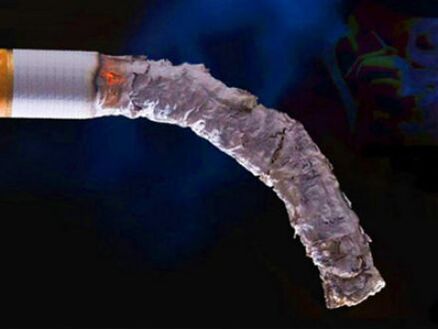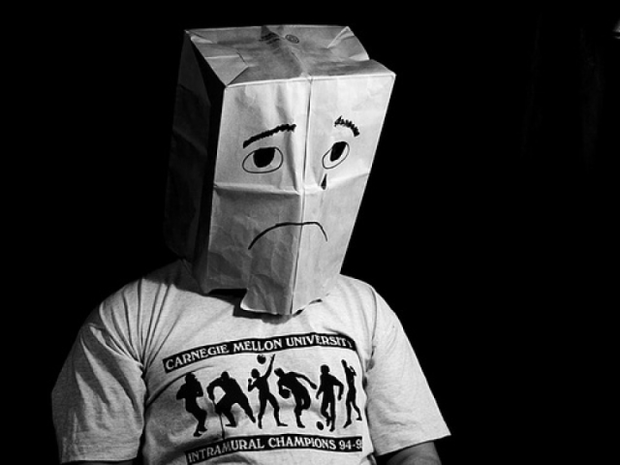It is very important for every man to have a strong sex drive. One of the biggest subconscious fears of men is impotence or impotence. However, after 40 years, men may begin to show the first signs of decreased potency.

In this case, you need to discard all complexes and consult a doctor, because in the early stages, the problem is treated quickly and effectively.
Potency Issues: Types of Disease
Impotence is the gradual weakening and disappearance of male sexual function. The disease periodically reminds itself after the age of 40, and with age, men will only intensify if no action is taken. There are some symptoms (or criteria) that allow a doctor to diagnose men with decreased potency:
- Men are not sexually attractive to women.
- With libido, men still have difficulty getting an erection, i. e. erectile dysfunction is observed.
- A man cannot insert an erect penis into a woman's vagina.
- Men have premature ejaculation, and erections are short-lived.
- Men have delayed ejaculation or even no ejaculation at all.
- In order to orgasm, men need special conditions (eg, in cars, elevators, parks, etc. , where other people can see intercourse, or in other non-standard conditions).

Depending on the nature of its occurrence, there are two types of impotence:
- organic. This type of illness occurs due to any problem with the body: certain diseases, medications, injuries, etc.
- Psychogenic. The disorder is caused by any psychological factor: stress, subconscious fear of sexual failure, insecurities, psychological trauma, etc.
However, there are many reasons why a potency disorder may develop. Knowing them is very important because figuring out the cause of the problem is the first step in getting rid of the problem itself.
Potency Issues: Why
What should a man do if he has an STD? First, you need to determine what's causing this.
The most common reasons for the development of problems in men are as follows:

- irregular sex life. If a man's sex life is irregular, the potency will be reduced and the sexuality will be distorted.
- Infectious diseases. Through sexually transmitted diseases, modern medicine can treat them quickly and effectively. But only a drug that delivers such a good therapeutic effect can significantly reduce potency. Therefore, overly active sex, having sex with different partners is not the best option. The danger of potency is also not a complete cure for urogenital diseases: prostatitis, orchitis, seminal vesiculitis, urethritis, etc.
- chronic disease. Hypertension, endocrine system disorders, diabetes, benign prostatic hyperplasia and other diseases, the libido is significantly reduced.
- Bad habits and objective factors. Alcoholism, drug use, a negative lifestyle, smoking, irregular sleep and nutrition, and unfavorable climate are also enemies of a man's sexuality.
- age factor. After 40 years, the "first bell" of diminished male sexuality may appear. At the same time, you need to understand that everyone has their own body, their own rhythm, their own norms. So you shouldn't take the doctor's norm as an axiom - have sex at least 1 time a week. If a man has a standard, say, 1 act in 10 days, then you shouldn't "raise the alarm" to prove to yourself and your partner that everything is within his capabilities. This will lead to physical exhaustion and then real chaos.
The fact that he is no longer able to do all the things he has been able to do recently is a huge stress for anyone. But impotence is treated quickly and effectively. The sooner a person can turn to an expert, the faster and easier it is to solve the problem.
Male Potency Issues: Physiological Aspects

The onset of impotence is easily explained by physiology. To do this, you just need to understand the details of the male penis structure and the mechanism by which the erection begins. The body of the penis has a spongy structure that contains many cavities. This is what allows the installation process to begin.
When a member is in a state of calm, blood circulation occurs as follows: blood sneaks into the cavity through arteries and leaves through veins. During sexual arousal, blood flow to the cave increases dramatically, and the veins narrow, preventing blood flow. Every cavity was filled with blood. On the surface, this is precisely reflected in the tension and enlargement of the penis.
It's worth noting that nearly every man has had an inability to get an erection at least once. This is not a disease, nor is it a sign of impotence. If this happens constantly, then it is only in this case that it is possible to diagnose impotence.
The Physiological Nature of Impotence
There are many causes of impotence, purely physical, or physical in nature. These include:

- hormone imbalance. First, the cause may be dysfunction of the gonads responsible for producing testosterone. There are several signs of this problem: the timbre of the voice rises, excess fat builds up on the hips, buttocks, chest, and hair growth on the body and face slows down. Another cause could be a pituitary tumor. This is full of the fact that the tumor is actively producing prolactin. It is the excess of this hormone that causes the disease.
- The corpus cavernosum is sclerotic. In other words, the thin tissue of the penile cavity dies and is replaced by thick tissue. In turn, hardening can be caused by damage to the penis, priapism, deliberately delayed sexual intercourse (if this is a common practice).
- Cardiovascular disease. Conditions such as aortic aneurysms, varicose veins, and atherosclerosis can cause potency problems in men. They directly affect the process of inflow and outflow of blood in the penis. In particular, blood flow to the penis can become insufficient, which can lead to prolonged and sometimes painful erections. In this case, the member can be said to be in a semi-excited state. Or, conversely, there is too much blood flow, which makes an erection happen quickly, but just as quickly and end. Sometimes men don't even have time to finish intercourse.
- Nervous system disease. Conditions such as epilepsy, traumatic brain injury, Parkinson's disease, and multiple sclerosis can cause sexual problems. However, these diseases often make a person's condition worse and reduce his quality of life so much that sex is the last thing he wants to think about.
Male Potency Issues: Psychological Aspects
Impotence can also be psychogenic. This means that it is psychological factors that affect male sexual performance. These possible causes usually include:

- psychological trauma. This can be a variety of situations: for example, a man fails sexually, but he does not have the support of a woman. Worse yet, if a woman not only shows resentment or annoyance, but mocks a man, accusing him of not loving her, or worse, saying she can't do anything about it. How women behave and react in this situation plays a huge role.
- Stress, nervousness, depression. Modern life is stressful; for many, life is a race to the bottom. It's no surprise that sooner or later a man will struggle with intimate matters.
- Complex, subconscious fear. According to andrologists, the reason why a person starts having difficulties is psychological. Inability to satisfy a woman's complex emotions (eg, in a first intimacy), fear of "fucking it up" (especially if there's already a precedent), etc. - All of this immediately affects a person's potency. In addition, there may be a partner disagreement, which can also lead to impotence. Of all the possible causes of impotence, psychological causes are the most common, according to andrologists. Therefore, men with this diagnosis are usually treated by a psychologist (sexologist). <
Treatments for Potency Disorders
There are several ways to treat this disease. Depending on the severity of the disease, its cause, the patient's age and general health, and other factors, doctors may make the following recommendations:
medical treatement
Pharmacies are flooded with various "potency" drugs. But not everyone thinks they can harm the body in reverse. In addition, for a man, if it is endocrine disorders that cause impotence, no matter how much medicine he takes, it will not help, because the situation will only improve after endocrine disorders. Therefore, you must always remember that medication is the prerogative of a specialist.
Psychologist (sexologist) consultation
Psychologists (sexologists) can help not only in cases of psychogenic impotence, but also in cases where men go through a very difficult diagnosis, fall into a state of depression, etc. A psychologist can help a person:
- Identify the cause of the problem (fear, complex, stress, uncertainty, etc. ).
- Address these psychological issues (eg, get rid of complexes or teach how to deal with stress).
- Get out of despair, depression, etc. , if you have these experiences.
- Provide psychological support to help patients look to the future with optimism.
Often, if a person has a serious medical condition, medication combined with psychotherapy can produce excellent results.
penile prosthesis
This is a drastic measure and is used as a last resort when no treatment is helpful. Usually this method is offered to younger men. The surgical results are 100% and the level of surgery is so high that even specialists don't always notice that a penile prosthesis has been performed.
Only doctors can treat patients. He makes a diagnosis, a comprehensive examination, determines the cause of the disease and prescribes the necessary course of treatment for a particular patient based only on these data. Sometimes a psychologist works with both parties, because the effectiveness of the treatment depends directly on the correct behavior of the wife.
Additional activities
These include dietary advice, for example, and can even resolve problems on their own in the early stages of the disease. In more severe cases, diet is a mandatory additional measure. It is important for anyone to eat foods rich in vitamins E, C, and beta-carotene.
Vitamin E contains various raw nuts, sunflower seeds, beef liver, buckwheat, oatmeal, eggs, vegetable oils (especially soybeans).
Vitamin C is found in marine fish, seafood, berries, citrus fruits (especially lemons), fruits.
Carrots, bell peppers, various cabbages, greens (especially parsley), and apricots contain large amounts of beta-carotene.

























